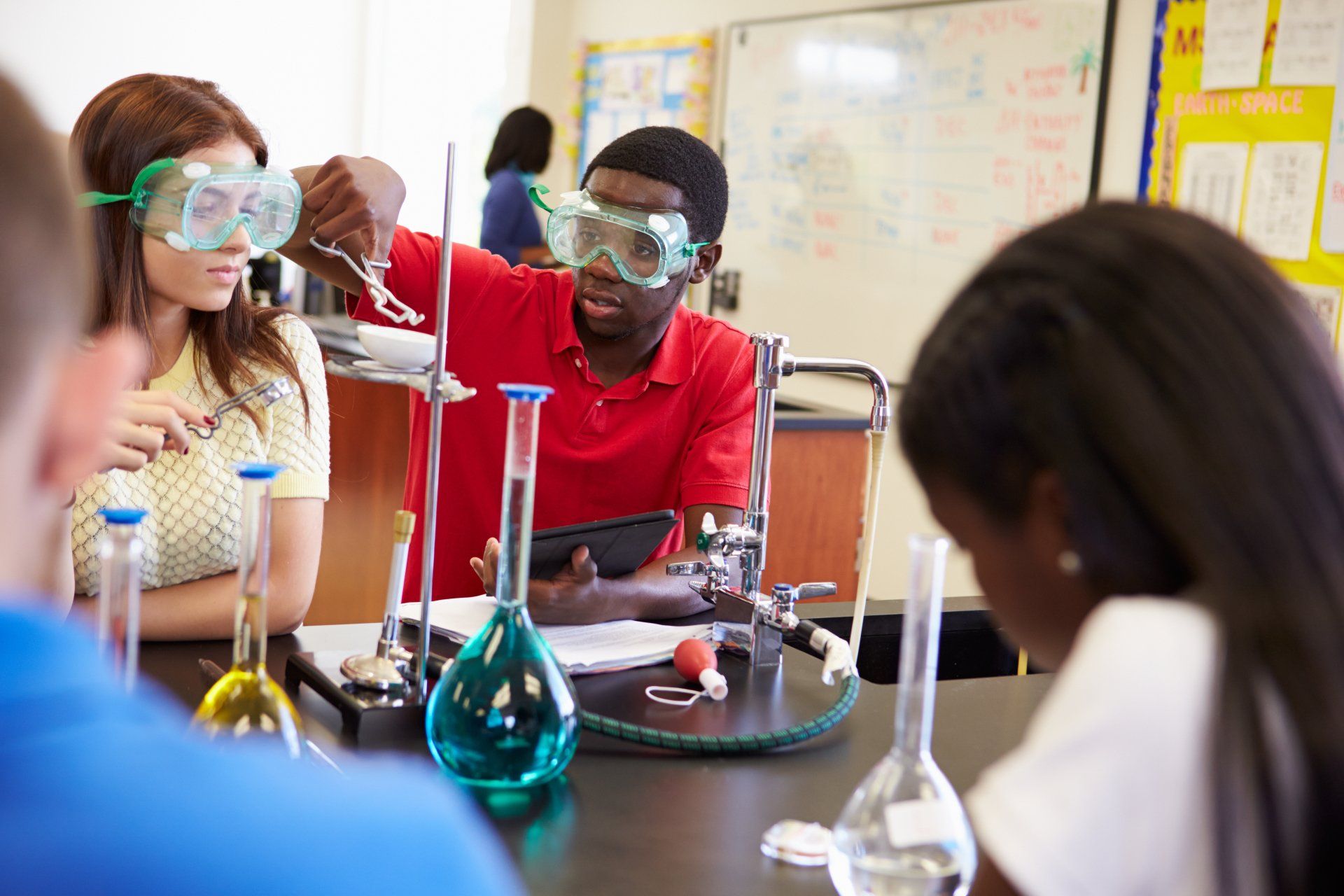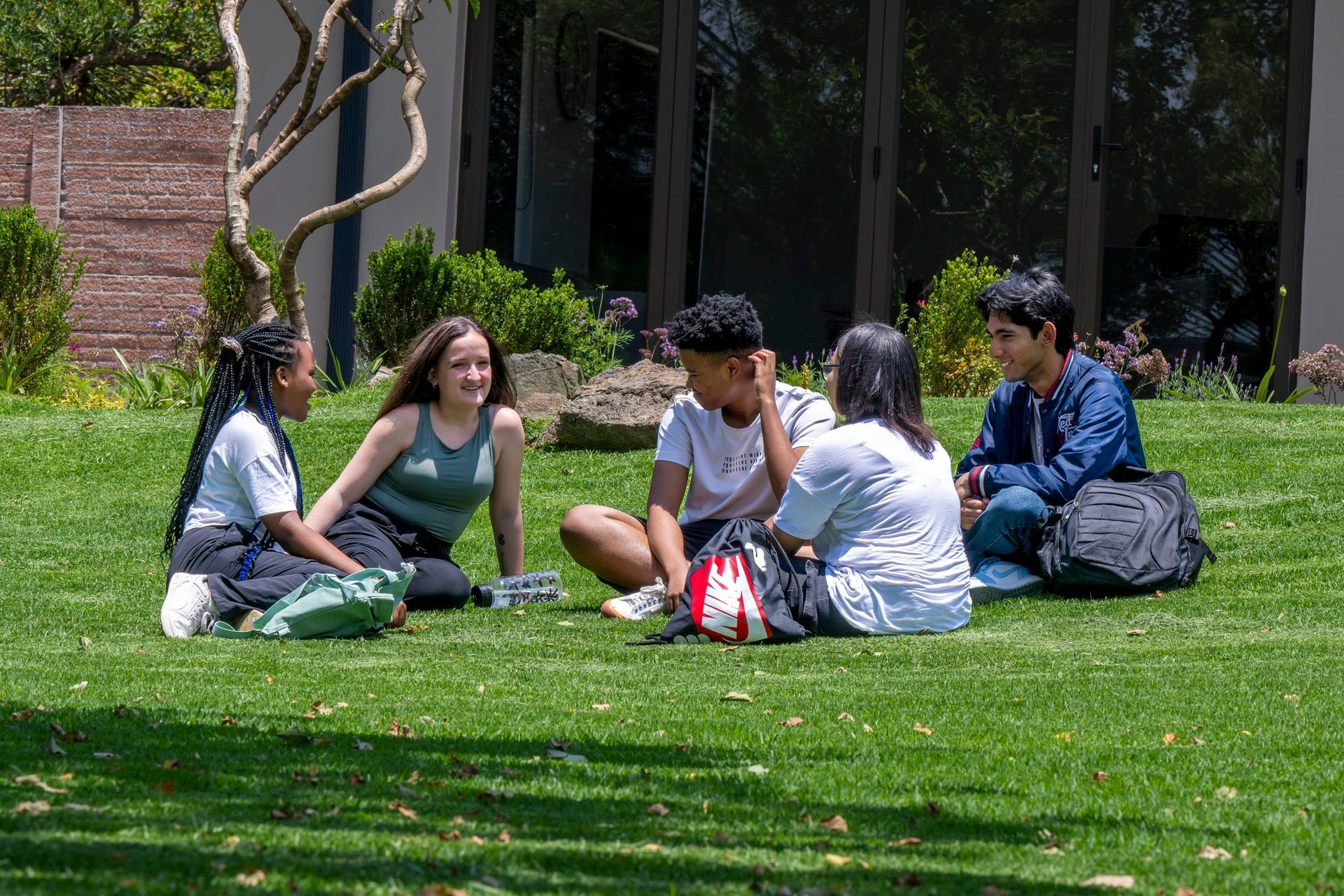Grade 9 career guidance | Choosing Life Sciences in High School
One of the most interesting subjects in high school
Life Sciences or biological sciences comprise the branches of science that involve the scientific study of life and organisms such as microorganisms , plants , and animals including human beings.
Life Sciences is one of the two major branches of Natural Science , the other being Physical Science , which is concerned with non-living matter.
Some life sciences focus on a specific type of organism. For example, Zoology is the study of animals , while Botany is the study of plants. Other life sciences focus on aspects common to all or many life forms, such as anatomy and genetics. Some focus on the micro scale (e.g. molecular biology , biochemistry ) and other on larger scales (e.g. cytology , immunology , ethology , ecology ). Another major branch of life sciences involves understanding the mind i.e. neuroscience.
Discoveries made in Life Sciences are helpful in improving the quality and standard of life and can be applied to health, agriculture, medicine as well as the pharmaceutical and food science industries.
In the Grade 12 syllabus, Abbotts covers a section on genetics and the study of DNA. Genetics is a branch of biology concerned with the study of genes , genetic variation , and heredity in organisms.
Though heredity had been observed for millennia, Gregor Mendel , a scientist and Augustinian friar working in the 19th century, was the first to study genetics scientifically. Mendel studied "trait inheritance", patterns in the way traits are handed down from parents to offspring. He observed that organisms (pea plants) inherit traits by way of discreet "units of inheritance". This term, still used today, is a somewhat ambiguous definition of what is now referred to as a “gene” and therefore the term “genetics”.
As complicated as what it sounds, genetics is the section that most teachers are passionate about. There is such a sense of gratification when learners ask questions about why they have certain characteristics from their mom or dad and, once you go through the content with them, the light bulb switches on. As a teacher, it’s remarkable to witness says James Messian, Life Sciences Teacher at Abbotts College Centurion.
The study of the Life Sciences gives important insight into disease processes and allows the development of novel therapeutic and innovative medical devices, thereby directly improving human health. Life Sciences also enables an understanding of the environment and the other living species with which we share the earth. This knowledge guides conservation efforts and helps us to save our shared planet.
Life Sciences empowers us to answer fundamental questions about ourselves: Where did we come from? What are we made of? What is the basis for the miracle of our existence? What is our place in the natural world, in the tree of life? Life Sciences reveals the truth of our existence and shines a light on our real identities, so that we discover our true reality.
If you take Biology or Life Sciences as one of your subjects, it can open a lot of opportunities. It is a multi-discipline field that requires you, as a student, to learn, apply, evaluate and to do practical work.
While many people view Life Science as one of the hardest, and the most boring subjects, it is really one of the most interesting.
Important ways to help one master this subject are:
·to listen carefully in class
·immediately review what has been taught
·keep reading.
One thing that learners need to remember is that after mastering the subject, there are plenty of career opportunities available to them.
Those who are interested in the field of Biology can either decide to become social or medical researchers or go the industry route. This is vast, and includes tourism, conservation, agriculture, journalism, veterinary science, environmental law, biotechnology, biochemistry and medicine.
Students who choose this subject must prepare themselves for a lot of work.
There is lots to learn, meaning that the workload may seem overwhelming at times, but they need to know how to apply knowledge as well as how to evaluate and understand it. Here’s a handy summary of the different jobs you will find in the Life Sciences sector:
Biomedical Scientist
Biomedical scientists examine medical samples, for example, blood and tissue, thereby helping doctors to diagnose and treat diseases. They use their knowledge and test results to advise and support doctors and other medical staff. Biomedical scientists need in-depth knowledge of areas such as pathology, anatomy and physiology.
Biotechnologist
Biotechnologists combine Biology, the science of living things, with technology. They research and develop the use of Biology to solve problems in areas such as health care, the pharmaceutical and chemical industries, agriculture, food production and environmental protection
Biochemist
Biochemists study the chemistry of life. They investigate life's processes at the level of molecules, using their knowledge to identify and solve biological problems. They research and develop new products and processes to benefit a wide range of areas, including food processing, pharmaceuticals, healthcare and agriculture.
Computational Biologist
Computational biology involves the development and application of data-analytical and theoretical methods, mathematical modelling and computational simulation techniques to the study of biological, behavioural, and social systems. The field is broadly defined and includes foundations in computer science, applied mathematics, animation, statistics, biochemistry, chemistry, biophysics, molecular biology, genetics, genomics, ecology, evolution, anatomy, neuroscience, and visualization
Microbiologist
Microbiologists study the biology and chemistry of microbes. They apply their knowledge to solve problems in areas like agriculture, food production, the water industry, medicine and pharmaceuticals, and to manage and protect the environment.
Clinical Research Associate
Clinical research associates organise and run trials to test the safety of new medicines and to see if they work efficiently. They choose and set up sites where tests take place, supervise trials and monitor the quality of data from the trials.
Industrial Pharmacist
Industrial pharmacists are involved in the discovery and development of safe, effective drugs and medicines. They can work at any stage of the process, including research, development, clinical trials, overseeing production, quality testing, marketing and applying to have the drug legally registered.
Research Assistant
A research assistant is a researcher employed, often on a temporary contract, by a university or a research institute, for the purpose of assisting in academic research. Research assistants are not independent and not directly responsible for the outcome of the research and are responsible to a supervisor or principal investigator. Research assistants are often educated to degree level and might be enrolled in a postgraduate degree program and teach at the same time.
Bioinformatician
Bioinformatics is an interdisciplinary field that develops methods and software tools for understanding biological data. As an interdisciplinary field of science, bioinformatics combines computer science, statistics, mathematics, and engineering to study and process biological data.











